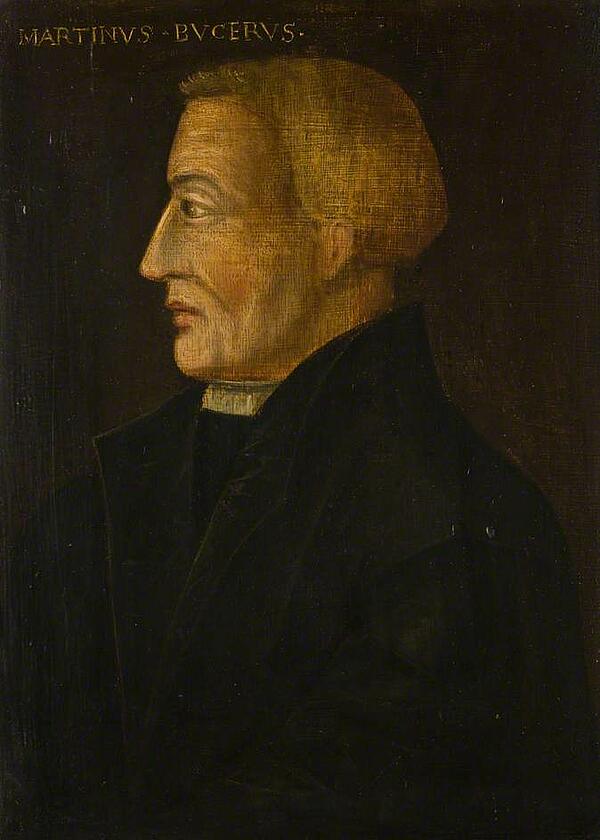Martin Bucer
Martin Bucer was the leading reformer in Strasburg. Although he is not as well known as other Protestant reformer, like Martin Luther and John Calvin, he had a significant influence over the French city.
Born on 11 November 1491, Martin Bucer entered the Dominican monastic order in 1506. After studying the works of Erasmus he became a follower of humanism and accepted the arguments of Martin Luther. In 1521 he withdrew from the Dominicans to become the chaplain to Franz von Sickingen, a protestant knight, and in 1522 became pastor of Landstuhl in the Palatinate. Here he married a former nun called Elizabeth Silbereisen.
Excommunicated by the church in 1523, he made his way to Strasbourg, where his parents’ citizenship assured him of protection. His personal charm, intellectual abilities, and zeal eventually gained him a position of leadership in the city.

Martin Luther’s ideas had spread to Strasburg as early as 1521, when preachers came to the city to “preach the pure Gospel”. The people of Strasburg were tired of the abuses of the clergy, included a problem with absentee bishops and poor quality priests. The fact that the city was also a major centre of the book trade made it very susceptible to the influence of the printed word.
1525 marked the beginning of religious reform with the work of the chief magistrate Johann Sturm and Wolfgang Capito. Strasburg was at risk of being pushed too quickly into reform by radicals. Bucer positioned himself as head of the reforms in 1527 and stamped out the influence of the Anabaptists.
Bucer’s reformed included the rejection of the Anabaptists’ teachings. He also advanced the idea of predestination; maintained the separation of church and state; ensure the city’s magistrates could still oppose any form of absolutism; used a system of pastors, doctors, elders and deacons to ‘spread the word’ in the city; and simplified church services. This system influenced John Calvin, who lived in Strasburg from 1538 to 1541.
Bucer adopted some of the ideas of Ulrich Zwingli and Martin Luther. He believed that the key to the Protestants success was to join together. Bucer had a remarkable ability of putting forward vague arguments that still sounded sophisticated. However, he was still unable to convince Luther and Zwingli to see eye to eye at the Marburg Colloquy in 1529.
Bucer’s authority in Strasburg was threatened by Charles V’s victory at the Battle of Mülberg and he had no choice but to flee. He was offered a safe haven in England by Archbishop Cranmer, where he became Regius Professor of Dvinity at Cambridge University in December 1549.
He died on 28 February 1551 and was buried in England. However, his body was exhumed and burned at the stake for being a heretic when Mary I became queen of England.
See also: John Oecolampadius
MLA Citation/Reference
"Martin Bucer". HistoryLearning.com. 2026. Web.
